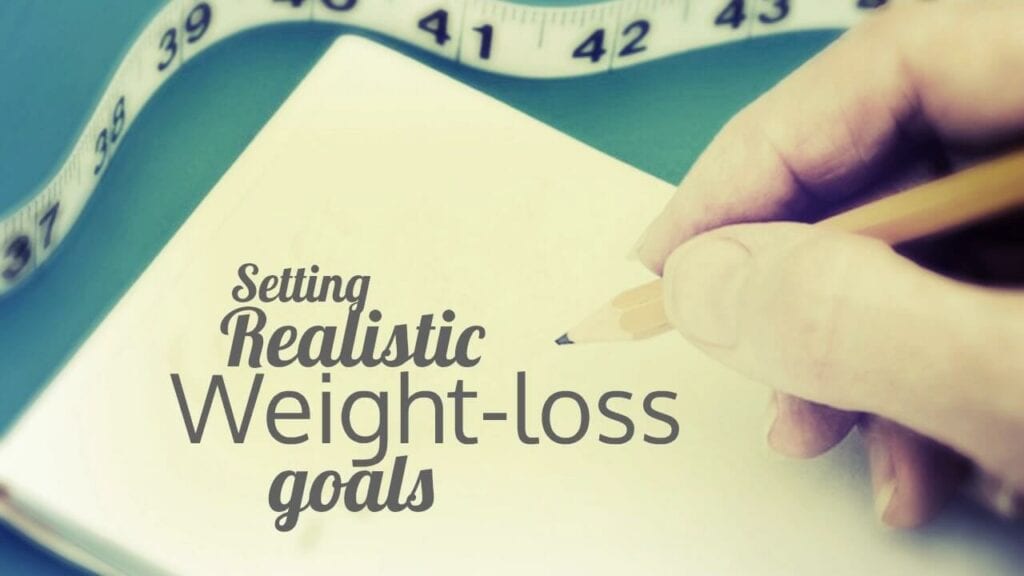Losing weight is a common aspiration for many, and the desire to shed those extra pounds often leads to the exploration of various methods. While there's no magical solution, adopting a sensible approach can make a significant difference. In this article, we'll delve into three straight forward Lose Weight Fast in 6 Simple Steps effectively and sustainably.
1. Set Realistic and Attainable Goals

The first step towards losing weight fast is setting realistic and attainable goals. It's essential to recognize that sustainable weight loss is a gradual process. Aim for a target of 1 to 2 pounds per week, as this ensures a healthy and maintainable pace. Breaking down your overall goal into smaller, manageable milestones allows for easier tracking of progress and helps maintain motivation throughout the journey.
2. Prioritize a Balanced Diet

A balanced and nutrient-dense diet is at the core of any successful weight loss journey. Focus on incorporating a variety of whole foods into your meals. Emphasize lean proteins such as chicken, fish, and legumes, and load up on colorful fruits and vegetables for essential vitamins and minerals. Whole grains and healthy fats like avocados and nuts contribute to a well-rounded diet.
Mindful eating is crucial during this process. Pay attention to portion sizes, listen to your body's hunger and fullness cues, and avoid emotional eating. Reducing your intake of processed foods, sugary snacks, and high-calorie beverages is key to achieving your weight loss goals. Choose nutrient-dense options that fuel your body efficiently.
3. Include Regular Exercise

Exercise is a fundamental component of any weight loss plan. Integrate both cardiovascular exercises and strength training into your routine for optimal results. Cardiovascular activities like brisk walking, running, or cycling help burn calories, while strength training builds lean muscle mass, boosting your metabolism.
Consistency is key in establishing an exercise routine. Find activities you enjoy, as this increases the likelihood of adherence. Whether it's joining a fitness class, going for a jog, or hitting the gym, incorporating regular exercise not only aids in weight loss but also improves overall fitness and mental well-being.
4. Stay Hydrated Throughout the Day
Proper hydration is often underestimated in its impact on weight loss. Drinking an adequate amount of water throughout the day supports various bodily functions and can aid in weight management. Before meals, consider drinking a glass of water to help control appetite and reduce overall calorie intake.
Opt for water, herbal teas, or infused water instead of sugary drinks. Not only does this contribute to your hydration goals, but it also reduces unnecessary calorie consumption. Staying hydrated is a simple yet powerful step in your weight loss journey.
5. Explore Intermittent Fasting

Intermittent fasting is an eating pattern that alternates between periods of eating and fasting. This approach has gained popularity for its potential benefits in weight loss and overall health. Two common methods include the 16/8 method (16 hours of fasting, 8 hours of eating) and the 5:2 method (normal eating for five days, restricted calorie intake for two non-consecutive days).
Before incorporating intermittent fasting into your routine, consult with a healthcare professional. While many individuals find success with this approach, it may not be suitable for everyone, especially those with certain medical conditions. Customizing your fasting schedule to align with your lifestyle and preferences ensures a more sustainable implementation.
6. Prioritize Quality Sleep
Quality sleep is a critical factor in successful weight loss. Inadequate sleep can disrupt hormonal balance, leading to increased cravings, a higher likelihood of choosing unhealthy food options, and potential weight gain. Aim for 7 to 9 hours of quality sleep each night to support your weight loss efforts and overall well-being.
Establishing a consistent sleep routine, creating a conducive sleep environment, and avoiding stimulants before bedtime contribute to better sleep quality. Prioritizing quality sleep enhances your body's ability to recover, regulates hormones, and positively influences your overall health.
Conclusion
Embarking on a journey to lose weight fast involves a holistic approach that considers various aspects of your lifestyle. Setting realistic goals, prioritizing a balanced diet, incorporating regular exercise, staying hydrated, exploring intermittent fasting, and prioritizing quality sleep collectively contribute to effective and sustainable weight loss Fast in 6 Simple Steps .
Remember that individual results may vary, and it's essential to prioritize long-term health over quick fixes. Consulting with a healthcare professional or registered dietitian ensures a personalized approach tailored to your unique needs and circumstances.
Implementing these six simple steps with dedication and consistency can pave the way for not only losing weight fast but also establishing healthier habits for a lifetime.
Frequently Asked Questions
Q. Can I skip meals for faster weight loss?
Ans: Skipping meals is not recommended, as it can lead to nutrient deficiencies and slow down your metabolism. Eat balanced meals at regular intervals for sustainable weight loss.
Q. How long does it take to see results?
Ans: Individual results vary, but with consistent effort, you may start noticing changes within a few weeks. Patience and persistence are key to long-term success.
Q. Are weight loss supplements necessary?
Ans: While some people find success with supplements, it's crucial to consult with healthcare professionals before incorporating them into your routine. Focus on a balanced diet and exercise first.
Q. Can I eat my favorite foods while trying to lose weight?
Ans: Yes, moderation is key. You can enjoy your favorite foods occasionally, but focus on overall healthy eating for sustained weight loss.
Q. What's the role of hydration in weight loss?
Ans: Staying hydrated supports your body's metabolic processes and helps control hunger. Aim to drink at least 8 glasses of water a day for optimal results.
